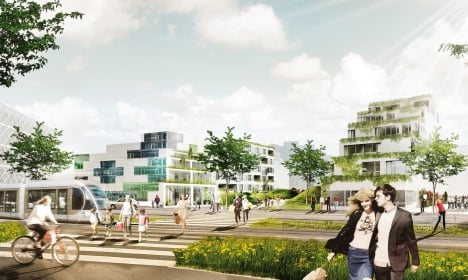The Danish city of Aarhus plans to develop a new suburb north of the city with homes for 15,000 people that will be entirely free of cars, according to Licitationen.
The district will be called Nye – which is also the Danish word for ‘new’ – and falls under the city’s strategy, announced in 2009, to develop new residential districts.
Nye is expected to become a green suburb where modern technology will be applied to create a harmony between its residents and the surrounding nature. There will be a tram connecting the district to downtown Aarhus and plenty of bike lanes throughout the area.
Some of the people who may move to the area in the future will of course own cars, but will not be able to park them in their garages.
See also: Copenhagen invests in urban renewal
Instead, a parking area will be concentrated in a ”surmountable” walking distance from the residential area, according to property developer Jørn Tækker, whose company, Tækker Group, will be responsible for its development.
“We will gather parking spots within surmountable walking distance from the houses, but it will force residents to walk by the neighbours, which is one of the ways to get to know one another,” Tækker told Licitationen.
“In contract to a traditional suburban residential neighbourhood where you drive straight into your garage, walk into your house and hide behind your garden hedge, we want to create a socially active atmosphere where the best from a crowded city centre is combined with the best from suburban life,” he added.
According to Tækker, Nye will be divided into seven districts joined together by parks, canals and lakes, and will be surrounded by woodland and fields.
The project is expected to be complete within the next five years.




 Please whitelist us to continue reading.
Please whitelist us to continue reading.
Member comments